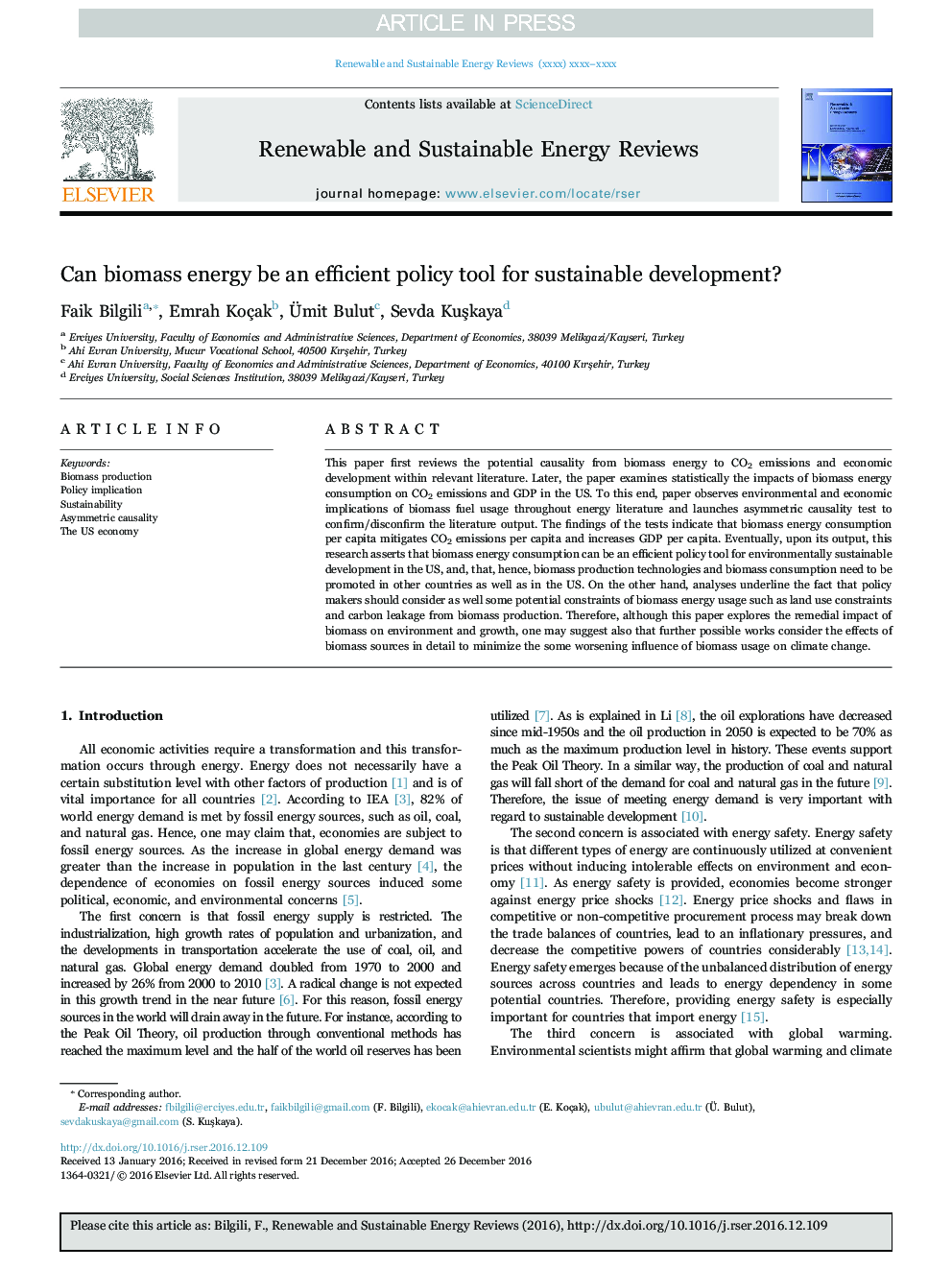| Article ID | Journal | Published Year | Pages | File Type |
|---|---|---|---|---|
| 5483085 | Renewable and Sustainable Energy Reviews | 2017 | 16 Pages |
Abstract
This paper first reviews the potential causality from biomass energy to CO2 emissions and economic development within relevant literature. Later, the paper examines statistically the impacts of biomass energy consumption on CO2 emissions and GDP in the US. To this end, paper observes environmental and economic implications of biomass fuel usage throughout energy literature and launches asymmetric causality test to confirm/disconfirm the literature output. The findings of the tests indicate that biomass energy consumption per capita mitigates CO2 emissions per capita and increases GDP per capita. Eventually, upon its output, this research asserts that biomass energy consumption can be an efficient policy tool for environmentally sustainable development in the US, and, that, hence, biomass production technologies and biomass consumption need to be promoted in other countries as well as in the US. On the other hand, analyses underline the fact that policy makers should consider as well some potential constraints of biomass energy usage such as land use constraints and carbon leakage from biomass production. Therefore, although this paper explores the remedial impact of biomass on environment and growth, one may suggest also that further possible works consider the effects of biomass sources in detail to minimize the some worsening influence of biomass usage on climate change.
Related Topics
Physical Sciences and Engineering
Energy
Renewable Energy, Sustainability and the Environment
Authors
Faik Bilgili, Emrah Koçak, Ãmit Bulut, Sevda KuÅkaya,
